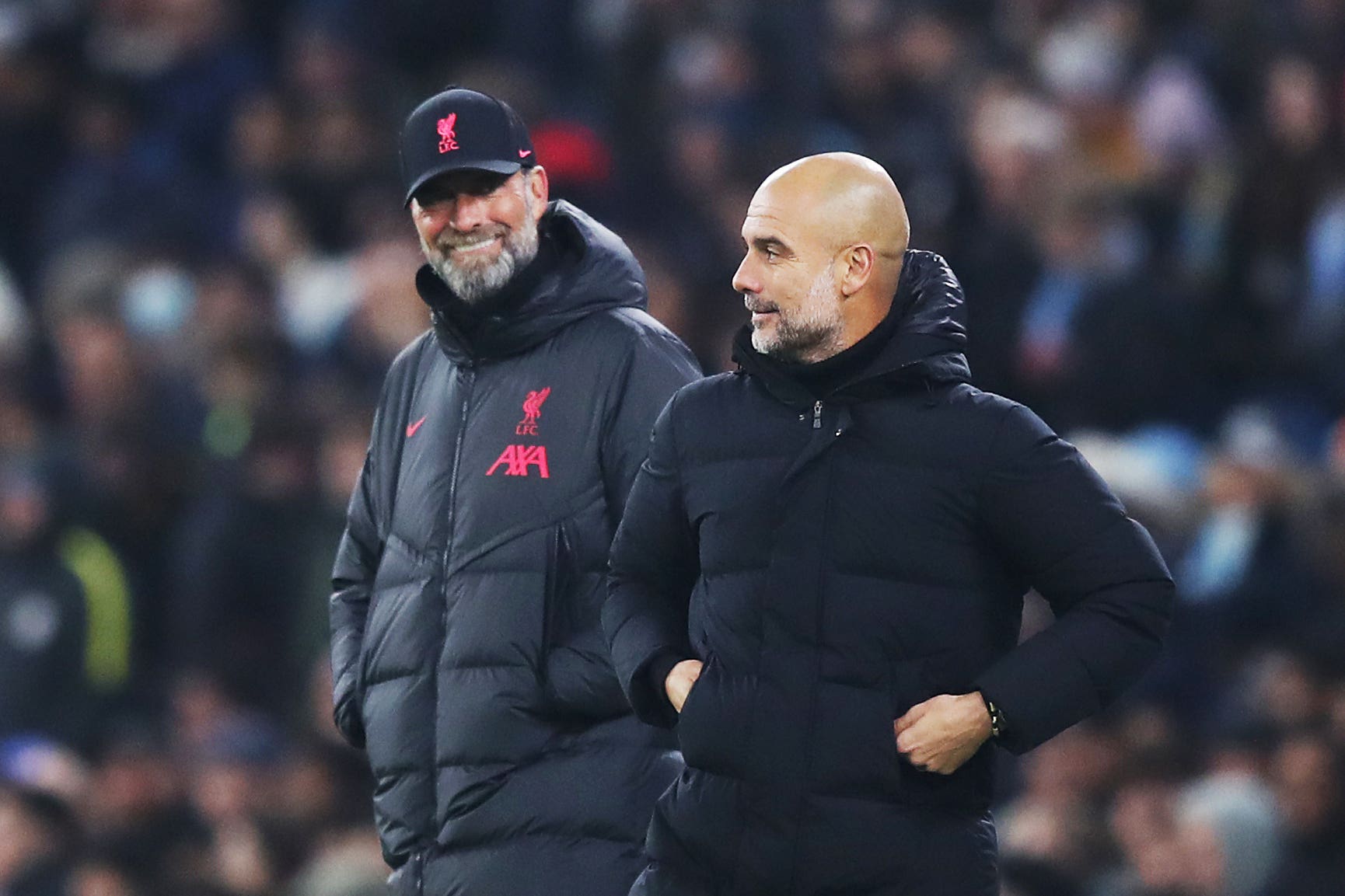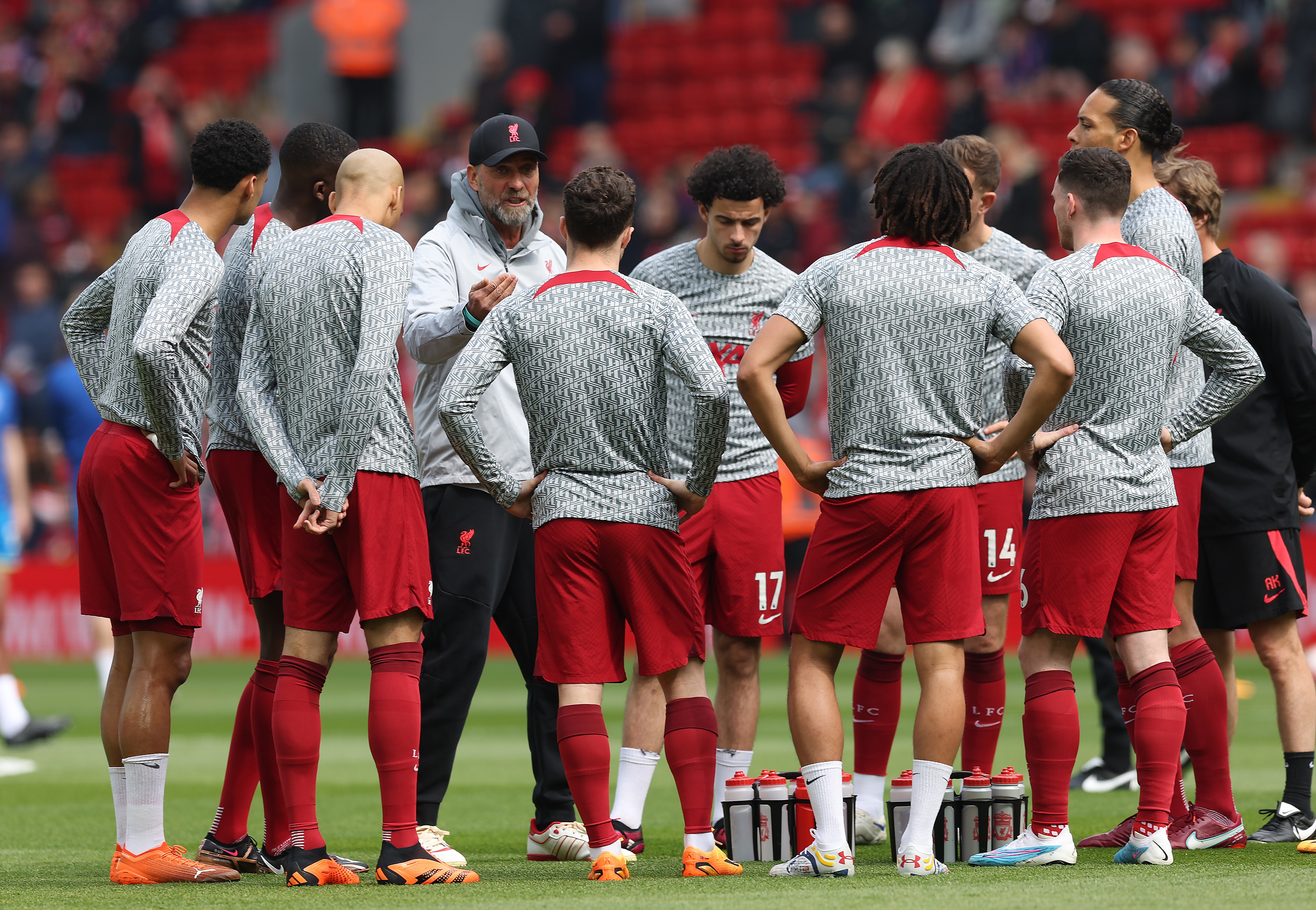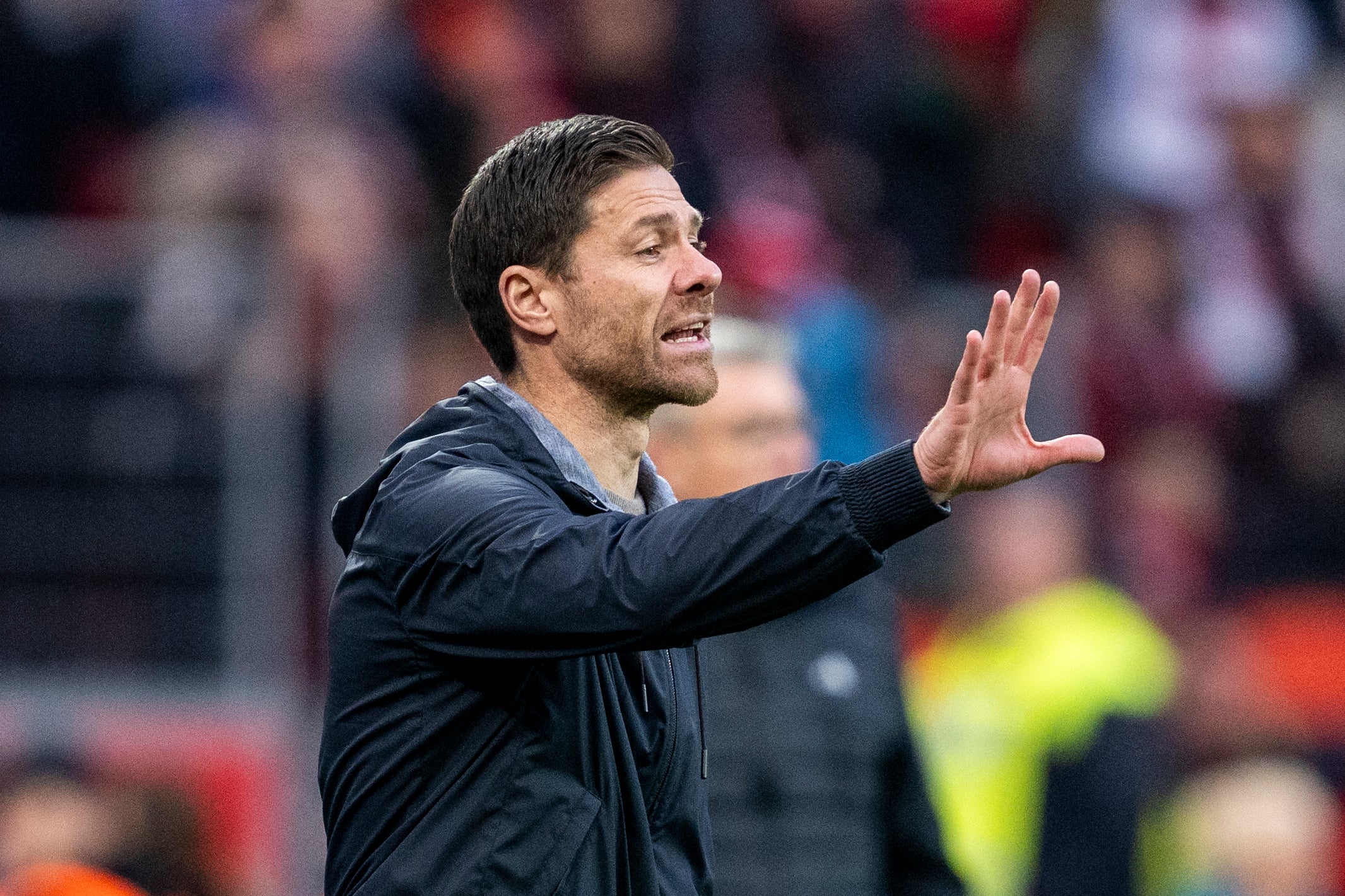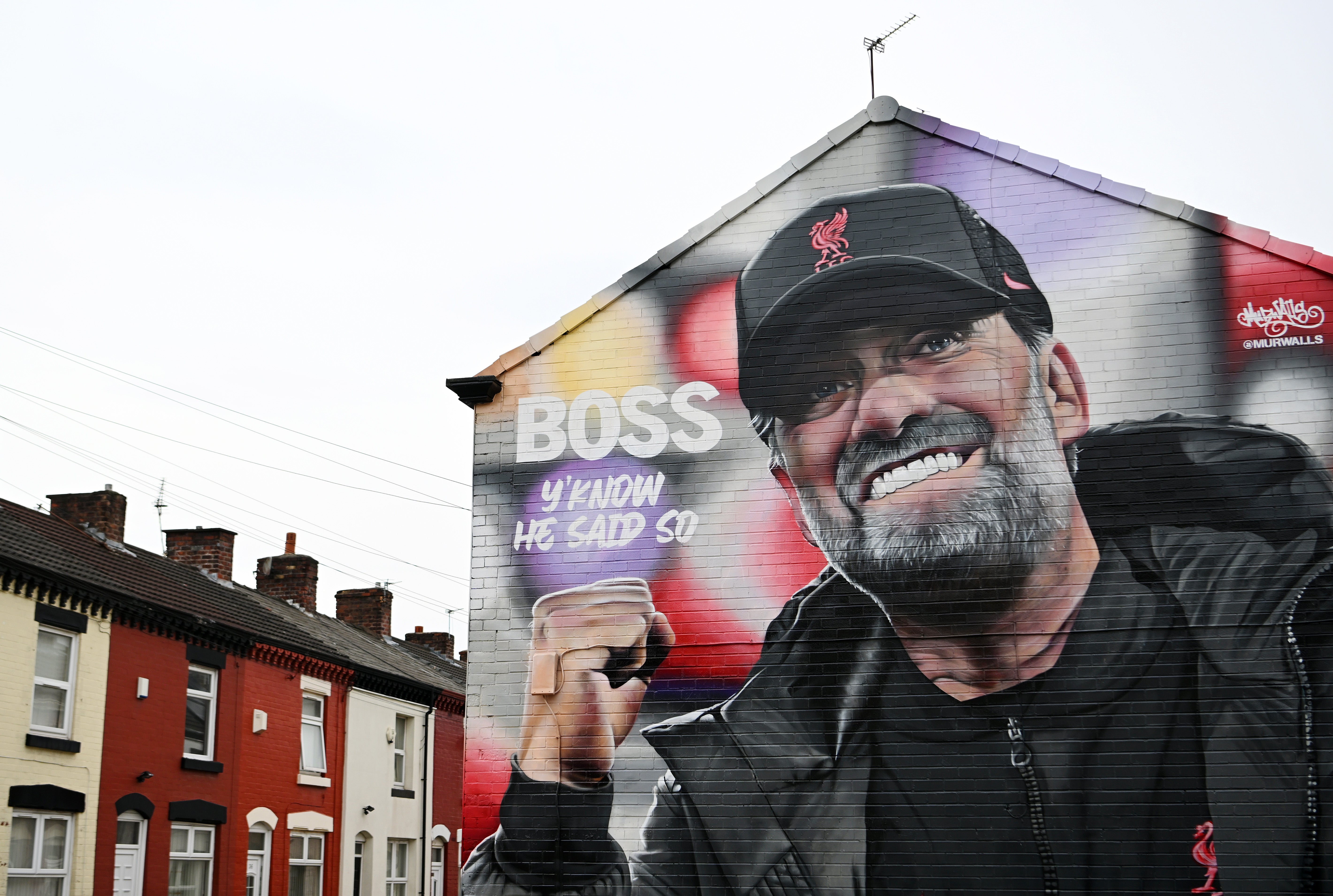The consequences of Jurgen Klopp’s Liverpool departure – and why his legacy is beyond question
The summer exit of Liverpool’s modern equivalent of Bill Shankly will leave a huge vacuum – at Anfield, in the Premier League and on modern football
Your support helps us to tell the story
From reproductive rights to climate change to Big Tech, The Independent is on the ground when the story is developing. Whether it's investigating the financials of Elon Musk's pro-Trump PAC or producing our latest documentary, 'The A Word', which shines a light on the American women fighting for reproductive rights, we know how important it is to parse out the facts from the messaging.
At such a critical moment in US history, we need reporters on the ground. Your donation allows us to keep sending journalists to speak to both sides of the story.
The Independent is trusted by Americans across the entire political spectrum. And unlike many other quality news outlets, we choose not to lock Americans out of our reporting and analysis with paywalls. We believe quality journalism should be available to everyone, paid for by those who can afford it.
Your support makes all the difference.It is rare in the modern game that news completely stuns the football world but that’s exactly what happened with Jurgen Klopp’s resignation. There was shock among major European managers and players.
It is, with an odd sense of appropriateness, the modern equivalent of Bill Shankly retiring in 1974. That can’t quite feature the incredible clips of a successor to Tony Wilson literally informing Liverpool fans on the street that their patriarch had left. They will have no doubt checked their smartphones, given everyone in the Premier League was sharing the news with exclamation marks and emojis within seconds.
Unlike Shankly, too, many of the consequences are immediately apparent. This is a very different and more financially defined game.
European football has, for the time being, lost the greatest counterweight to the continent’s current champions and most dominant team. Klopp is not just the only manager to have won Liverpool a title since their glory era. He is the only manager to have got close to Manchester City’s levels in England. His Liverpool are the only other team to get past 90 points since Pep Guardiola started winning titles and he did it three times. An arrival from the Bundesliga was almost the single biggest influence in preventing the Premier League looking like its German equivalent.
There is something else rather fitting in that, since Klopp was also the most direct and profound challenger to Guardiola in terms of pure tactics. Just as the Catalan re-interpreted Total Football to ensure that pressing spread to dominate the game, Klopp honed the counter-press.
As often happens with such direct rivals, their tactical ideologies have influenced each other and started to merge, their matches taking the game to intense new levels. One generally stayed above, though.
There is an interesting alternate history there. As it stands, Klopp has one Champions League, one Premier League, one FA Cup and one League Cup from his eight years at Liverpool. It’s impossible not to imagine what that might have been if this version of this City wasn’t around, where Guardiola’s side are the culmination of a state project.

We’d probably be talking about him now in even greater terms. Klopp of course became a rare voice willing to publicly discuss the effect of state influence on football, and it didn’t feel like it was entirely from self-interest either. That alternate history now layers a few more concrete questions for the future.
Will City have anything like the same level of challenger while Guardiola is there? Can Liverpool rise to the same levels without Klopp, or was he that singularly influential in taking them so high? Can any other club get to the same level? There will suddenly be even more focus on Mikel Arteta’s Arsenal and what Sir Jim Ratcliffe’s revolution will do at Manchester United. The very questions are probably bad for the Premier League, especially with Guardiola having won five titles in six years.
Klopp was in some ways as beneficial to City in that way, even as he criticised them. He offered a huge challenge that offered more substance to their victories. That really was an achievement, and to a more credible degree than the way Jose Mourinho tried to claim it.
It also feeds into the uncertainty that comes from the 115 alleged breaches. They may not have covered seasons when Klopp was challenging City but those campaigns were still inseparable from the way the repeat champions have been built.
It is why clarity is needed, as a new uncertainty reigns.
Who will now come in?
This is the most profound effect of Klopp’s resignation. He leaves a huge vacuum, that was filled by much more than that outsized personality. The modern game, already dispiritingly narrow at the very top end, has for the moment lost a substantial force. A club now needs a revenue of at least £400m to even compete and the few that can manage that then need someone mercurial to turn that money into the silver of trophies. Klopp was that.

In all of the discussion about his resignation, that is something that goes way beyond Liverpool that should be noted. The top of the game looks even narrower and lighter.
That does lead into more substantial immediate questions. What will he do this season?
It was only on Sunday that Klopp happily announced he felt this new team - excitedly referred to as Liverpool 2.0 - was ahead of schedule. He felt they’d developed far more quickly than expected. That is reflected in the league position at the top of the table but can they actually keep that going so early into a cycle? Could he go and put in another campaign, like in 2021-22, when they go excitingly far in all competitions? They’re still in four.
It adds a whole new level of intrigue and narrative to this season.
There’s then next season. Who will replace Klopp?
Xabi Alonso has already been cast as the most obvious successor but, as brilliant as he’s done in the Bundesliga with Bayer Leverkusen, it’s only been one season. Would that be too soon? Alonso is obviously an exceptionally bright coach but one of the reasons he currently looks so right for such a big job is because his career has been too brief to have blemishes. There is a sense that maybe it’s better to wait a bit.

Roberto De Zerbi is another mentioned, but would that feel a bit transitional, as if constantly seeking to fill a void in the way other big clubs have done in trying to replace a great name.
Perhaps no one can match up for some time. It might have escaped some notice that Liverpool have also announced the departure of Jorg Schmadtke as sporting director. That perhaps indicate that this will be seen as a chance to restructure the football department, precisely so Liverpool don’t feel the same effects as some rivals in replacing a great figure. It shouldn’t be overlooked that there was a lot of upheaval behind the scenes in the 18 months before this news, as Klopp became more of an old-fashioned manager in terms of his power. Perhaps, since you can’t directly replace a manager like him, it’s better to reshape the infrastructure and go for more of a head coach until someone like Alonso is ready?
There is probably some lament that, unlike those rivals that have faced similar questions, Klopp didn’t stay past a decade; that the legacy could have been even longer.
It’s why it does feel a touch soon, given it will end up at just short of nine years, but he obviously has to do what is right for himself. That is similarly why it’s pointless speculating on whether he will take an international job. The word is that he just needs a break. It’s been that intense, which is an inevitable consequence of that infectious but occasionally spiky personality.

The feeling persists that he could have done even more; that he could have won even more, and not just in the future. There is still this season of course. This news could go both ways, especially with Liverpool such a burgeoning time. The most famous example is Manchester United slacking off in 2001-02 when it was known that Sir Alex Ferguson was retiring. It wasn’t so famous that Klopp knew about it. He expressed surprise when it was put to him in his press conference. His most likely reference is one he has direct experience of, his own at Borussia Dortmund, and Jupp Heynckes at Bayern Munich in 2012-13. The latter won the treble. It can have a galvanising effect. Klopp’s legacy can yet improve. It is already beyond question.
Klopp restored Liverpool to the height of the game, to become a serious force again. He made them one of the great names again, and not just based on their history. He won their sixth Champions League. He won their long-awaited 19th title.
The latter has come in a totally different era to all previous, where its value is even more prized.
We may only realise the true value in the next few seasons.
Join our commenting forum
Join thought-provoking conversations, follow other Independent readers and see their replies
Comments